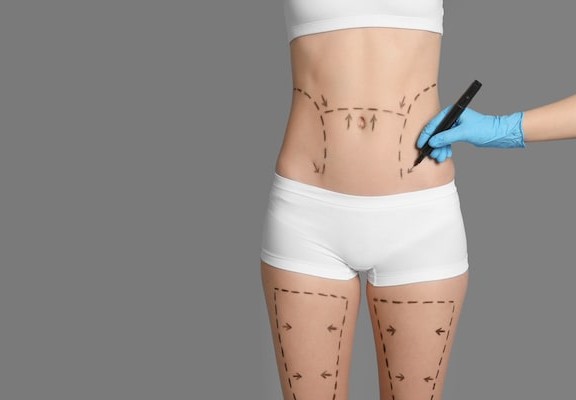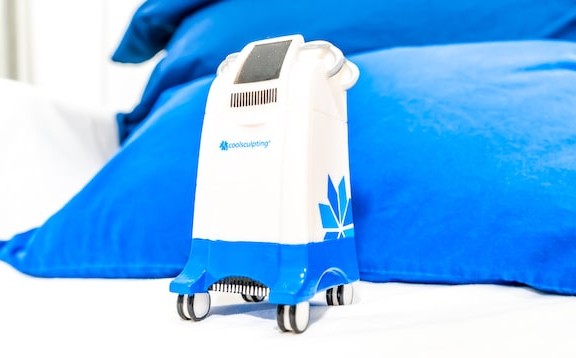 If you are planning to undergo liposuction, or have had one already, you probably know that recovery after the operation can be quite painful and may take a little while. Fortunately, there are a couple of things you can do to speed up the healing process and enjoy the benefits of the procedure. Post-operative care after liposuction is no different from other forms of surgery. Follow these tips to lessen your risk for complications, speed up your recovery and get the results that you want.
If you are planning to undergo liposuction, or have had one already, you probably know that recovery after the operation can be quite painful and may take a little while. Fortunately, there are a couple of things you can do to speed up the healing process and enjoy the benefits of the procedure. Post-operative care after liposuction is no different from other forms of surgery. Follow these tips to lessen your risk for complications, speed up your recovery and get the results that you want.
- Get enough rest – Whether you stay in the hospital or go home after the operation, you must rest for a few days. The length of your recovery period depends on the extent of the surgical area treated and how much fat was removed. More recovery time is needed if a larger area was treated. In general, you should be able to go back to your normal activities after a couple of days.
- Keep the surgical site clean – One of the most important pieces of advice for patients who undergo liposuction, or any form of surgery, is to keep the surgical site clean to prevent infections. To do this, change your bandages regularly. Don’t wash your wound because exposing it to water may increase your infection risk. Do not apply hydrogen peroxide or other cleansing products to the surgical site unless instructed to do so by your surgeon.
- Wear compression garments – After the operation, you will be asked to wear a compression garment to help apply constant pressure and to stop the bleeding of the surgical site. This garment also provides support, helps reduce bruising and swelling and improves blood circulation to help promote faster healing. Faster healing allows you to go back to your normal routine sooner. Some surgeons provide compression garments while others tell you to buy them at drugstores or medical supply stores. Compression garments are available in different sizes so you must choose one that fits you. If it’s too loose, an infection might creep in. If it is too tight, it won’t allow proper drainage. It is also important to avoid wearing a non-medical garment or one that is not specifically designed for post-surgical use. These include athletic shorts, girdles, sports bras and tights. They are not meant for continuous wear and won’t help with healing. They can even slow down your recovery and increase your risk for complications.
- Wear comfortable clothes – After the surgery, you will be advised to wear light clothing that is preferably made from cotton to allow the skin to breathe. Avoid wearing tight-fitting clothes as they might irritate the surgical site.
- Do not apply anything on the surgical site – One side effect of liposuction is sagging skin. The amount of sagging depends on the quality of your skin and how much excess fat was removed. To get rid of the sagging, patients often resort to using skin tightening products that do nothing but slow down the healing process. Here are some tips that will help you tighten your skin after liposuction. It is also advisable to do some light exercises to reduce sagging by toning and developing the muscles underneath the skin.
- Increase fluid intake – Increasing your fluid intake aids in a faster recovery. Drink at least 10-12 glasses of water each day. You can also have fresh fruit juices and health drinks. Avoid alcoholic drinks.
- Take short walks – A day or two after surgery, when you’ve had enough rest, you will be advised to get out of bed and take short walks inside your house or around the neighborhood. Staying in bed for too long without moving around increases the risk of blood clots which can travel to your legs or lungs.
- Moderate physical activities – Although you are advised to walk or move around gently as soon as you can, you are not allowed to resume strenuous daily activities and workouts for up to a month following the operation. You must take care after the procedure to prevent your surgical wound from opening up.
- Follow the instructions from your doctor – In order to reduce any discomfort that results from the surgery, your surgeon will prescribe some painkillers, anti-inflammatory drugs, and antibiotics. Follow the instructions for taking these medications and never take more than what is needed. If you are taking supplements prior to the operation, ask your surgeon if you have to discontinue them or not. Do not continue taking any supplements unless directed to do so because they can thin the blood and slow down clotting.
- Do follow-up visits – Frequent monitoring via regular checkups is crucial to ensure proper healing. The timing and interval of follow-up visits depends on the surgeon. Some ask their patients to return a day after the operation while others wait a week. The checkups help to monitor healing and catch any complications before they get worse.
Recovery from liposuction surgery can be uncomfortable but patients who follow their post-operative instructions thoroughly should do just fine. The recovery process may be a bit slow but following the above tips helps speed up the process.




